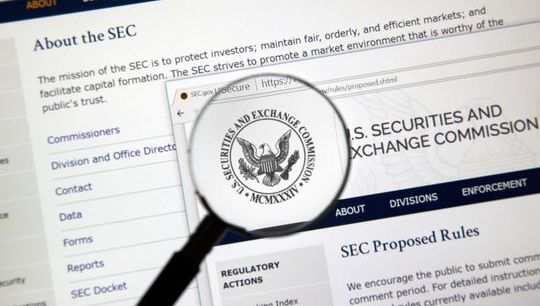Appropriate regulation of digital currencies
By Cedric Jeanson, Founder and Chief Executive Officer, BitSpread Ltd
Published: 23 April 2018
There has been some extraordinary language used by leading central bankers concerning digital currencies recently. Yves Mersch, a member of the European Central Bank’s executive board, likened them to a “will-o’-the-wisp, a malignant marsh dwelling creature of European folklore that lured travellers from their path to their untimely death and a watery grave”.
Agustin Carstens, general manager of the Bank for International Settlements, the central bank of central bankers, meanwhile labelled bitcoin as “a combination of a bubble, a Ponzi scheme and an environmental disaster.” He argued that central banks should clamp down on digital currencies before they become “a threat to financial stability”.
As the founder and chief executive of the world’s biggest digital currency market maker, I take a strong interest in these accusations, which I believe are mistaken. Let me address each claim individually.
Is bitcoin a bubble? Every time the price of bitcoin falls, sceptics claim that the bubble is about to burst, but they should not mistake the volatility inherent in a nascent asset class with a bubble doomed to failure. Since Mr Carstens’ comments were made the value of bitcoin has recovered from around $6,000 to around $10,000. The truth is the volatility of digital currencies is principally because of a lack of liquidity in markets, something we are working to change, and as liquidity is added to the market the volatility will become less pronounced.
It is sometimes said that there is no intrinsic value in digital currencies, and therefore that their value must fall to zero. It is true that many digital currencies will surely fail, but it is equally true that those that provide utility will retain value, and indeed may rise in value. And I would suggest that enabling people to transfer value to each other instantly, without the cost of using a bank to do the transaction, or the difficulty of exchanging different national currencies, has tremendous utility.
The second accusation is that bitcoin is a Ponzi scheme. Those who make this do not suggest it is literally a Ponzi scheme a la Madoff, but rather that because those who entered it very early have profited and those who enter it late may lose out, it is like a Ponzi scheme. But you could make this case for any investment which has risen dramatically in value before falling again, such as the London housing market.
The most valid claim is that mining digital currencies is environmentally harmful. However, you could still make the case that digital currencies are less environmentally harmful than traditional currencies (think of the environmental impact of manufacturing and distributing physical currencies). And digital currencies are evolving rapidly – it is likely that the successful currencies of the future will not require the same amount of processing power that the current ones do.
It is understandable that central bankers have been so critical of digital currencies. Traditional central banks tend to significantly debase the value of their national currencies over time. Today’s US dollar, for example, is the same value as around 4 cents around a century ago. Digital currencies have defined limits on the amount in circulation and therefore cannot be inflated, which makes them a threat to central banks.
Indeed, banks as an industry are also threatened by digital currencies. They have historically played the role of middleman in transactions, but digital currencies eliminate the need for that middleman. Credit card firms face similar disruption, and it is not surprising that they have been hostile to digital currencies either.
Unfortunately, this chorus of criticism has distracted policymakers and regulators from the real task at hand, which is sensible regulation of digital currencies. The digital ecosystem has sometimes been characterised as ‘crypto-libertarian’, inherently opposed to regulation of any kind. But we and many other members of the ecosystem firmly believe that there is value in regulation, not least preventing fraud and making sure investors can have confidence in institutions and markets in the space. It is extremely important that exchanges, for example, have strict anti-money laundering and ‘know your customer’ provisions. Ensuring this would go a long way to assuaging the concerns of central bankers about financial stability.
Ultimately, those authorities which would seek to eliminate digital currencies should remember the level of support these currencies are generating among members of the public. The most prominent example of this is in South Korea. After initial bans, the government was forced to backtrack by people power. The central premise of digital currencies is that they are networks of the people, by the people, for the people. Central bankers, policymakers and regulators should work with, rather than against, ordinary citizens in order to achieve sensible and effective regulation of the digital currencies space.
To contact the author:
Cedric Jeanson, Founder and Chief Executive Officer, BitSpread Ltd: [email protected]
This article was first published in Financial News in March under the heading ‘Why I reject the cryptocurrency criticism’








